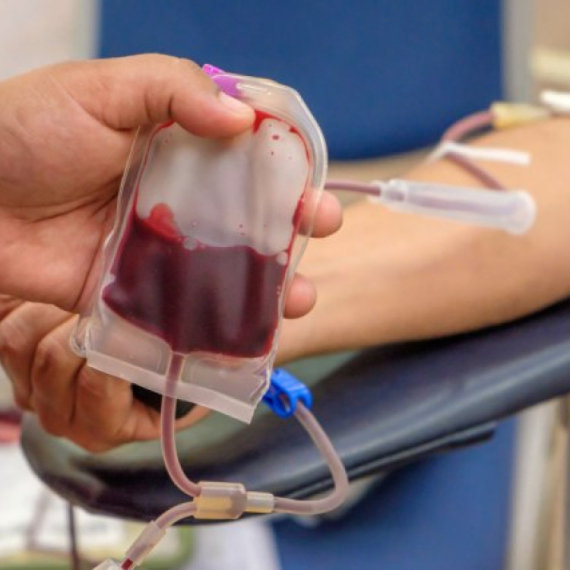"One in three Serbian children obese"
Experts have warned that every third child in Serbia is obese, and another 18 percent is overweight.
Sunday, 21.10.2007.
11:30

Experts have warned that every third child in Serbia is obese, and another 18 percent is overweight. At the start of next year, Serbia will adopt a national strategy regulating food advertising. "One in three Serbian children obese" This document will oblige schools and pre-school institutions to provide healthy food for children. For lunch, pre-schoolers receive mixed cooked vegetables, meat, and grapes after lunch. Teachers at the Sunce nursery in New Belgrade try to get children to develop healthy eating habits. They say that children can only have sweets after the main meal. The children like the food for the most part, though they prefer what they are given at home. Nursery meals are put together by nutritionists, and the menu is designed to meet children’s needs. At nursery, they are given 75 percent of their daily calorie intake. However, Ljepsa Zegarac, a nutritionist, says that many children do not eat all their meals at nursery. “The children eat some fast food on the way, or buy something at kiosks, so that they arrive full, and skip breakfast. The problem is, it’s very important for them to finish their breakfasts,” says Zegarac. In addition to learning how to sit properly at the table, and wash their hands, teachers also inform them about healthy food. Ljiljana Mitrovic, a coordinator at the April 11 pre-school institution, says that it is vital to work together with the parents. “Our main aim is to develop goods habits among the children. These include cultural hygienic habits, and we do this together with parents. It only works if it is done with the parents’ help,” says Mitrovic. Child obesity is a consequence of modern food being high in energy content, while children themselves become less and less active. This is a global problem, although more marked in southern Europe than in the north. Apart from banning fast food advertising, another solution is to serve healthy meals in schools, says Francesco Branca, a nutrition and food safety adviser at the World Health Organization (WHO). “Schools must provide not just education, but good food too. That means they have to increase vegetable and water intake, and provide children with drinking water and not alcoholic beverages,” she explains. To comply with the WHO’s ruling, Serbia needs to introduce rules leading to healthier eating habits for the population as a whole. The Health Ministry says that this area will be handled by a special national strategy for healthy eating.
"One in three Serbian children obese"
This document will oblige schools and pre-school institutions to provide healthy food for children.For lunch, pre-schoolers receive mixed cooked vegetables, meat, and grapes after lunch. Teachers at the Sunce nursery in New Belgrade try to get children to develop healthy eating habits. They say that children can only have sweets after the main meal. The children like the food for the most part, though they prefer what they are given at home.
Nursery meals are put together by nutritionists, and the menu is designed to meet children’s needs. At nursery, they are given 75 percent of their daily calorie intake. However, Ljepša Žegarac, a nutritionist, says that many children do not eat all their meals at nursery.
“The children eat some fast food on the way, or buy something at kiosks, so that they arrive full, and skip breakfast. The problem is, it’s very important for them to finish their breakfasts,” says Žegarac.
In addition to learning how to sit properly at the table, and wash their hands, teachers also inform them about healthy food.
Ljiljana Mitrović, a coordinator at the April 11 pre-school institution, says that it is vital to work together with the parents.
“Our main aim is to develop goods habits among the children. These include cultural hygienic habits, and we do this together with parents. It only works if it is done with the parents’ help,” says Mitrović.
Child obesity is a consequence of modern food being high in energy content, while children themselves become less and less active. This is a global problem, although more marked in southern Europe than in the north.
Apart from banning fast food advertising, another solution is to serve healthy meals in schools, says Francesco Branca, a nutrition and food safety adviser at the World Health Organization (WHO).
“Schools must provide not just education, but good food too. That means they have to increase vegetable and water intake, and provide children with drinking water and not alcoholic beverages,” she explains.
To comply with the WHO’s ruling, Serbia needs to introduce rules leading to healthier eating habits for the population as a whole.
The Health Ministry says that this area will be handled by a special national strategy for healthy eating.












































Komentari 0